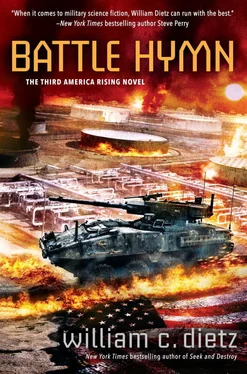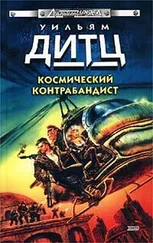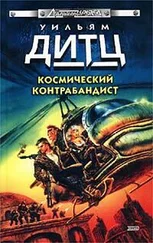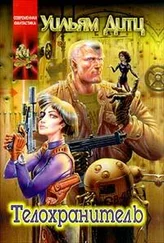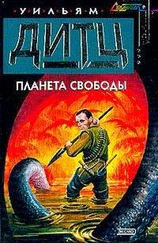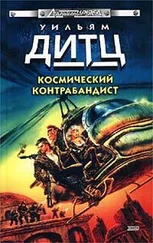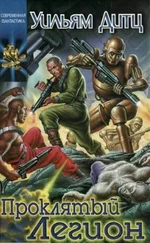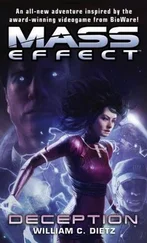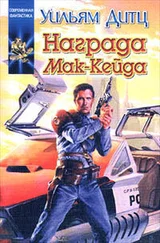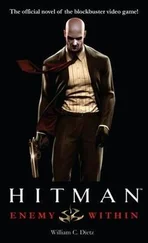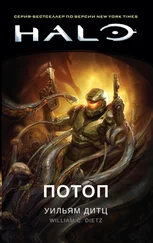Mac forced a smile. “Uh-oh, what’s up?”
“Major Corvo’s people found a list of the soldiers assigned to the base, and three rebs are missing.”
“There were lots of body parts lying around the compound,” Mac said. “Maybe they add up to three people.”
Walters shook her head. “No, I’m positive that they ran. And that’s one of the reasons why we won. The CO, the XO, and a doctor left their people to die.”
Mac winced. “That’s terrible… But why do we care?”
“Because they took all of the records with them. That includes how much oil was pumped, where it was going, and the name of the person who authorized the transaction. All of which would be useful after the war.”
Mac could imagine it. The trials would involve hundreds of defendants and last for years. “Roger that. Thanks for sharing. I hope Corvo finds them.”
Walters chuckled. “Nice try, Macintyre… But this plate of shit has your name on it.”
“No offense, ma’am… But that’s crazy. How would I find the bastards? They could be anywhere by now.”
A smile appeared on Walters’s face. “I have good news for you, Major… We have a very good idea where Lieutenant Colonel LeMay and his officers are.”
“LeMay was the CO?”
“Yes, he was. And when you blew the west gate, he and his buddies fought their way out through the east gate. They were in a Stryker, and quite possibly headed for a town called Frogsong.”
“ ‘Frogsong’? Seriously?”
“Seriously. That’s where LeMay’s family farm is located. It was a plantation prior to the first civil war and, according to Lieutenant Everson, it’s partially fortified. It seems LeMay is a hard-core every-man-for-himself Libertarian. So grab some sleep, gear up, and go to Frogsong. I want those records. Everson agreed to accompany you.”
Mac groaned. “Oh, goody… A POW to keep track of.”
“Stop whining,” Walters replied. “It sets a bad example.”
Mac made a face. “Yes, ma’am.”
Walters turned to go and turned back again. “One more thing.”
“Yes?”
“I put you in for a distinguished service medal.” Then she was gone.
Mac was tired but curious as well. So after consuming most of an MRE, she went looking for Lieutenant Everson. Much to her surprise, the Confederate officer was being held with the other POWs in a makeshift jail. The “pen,” as the MPs referred to it, was located inside the recently liberated compound. It consisted of a double-wide trailer that had originally been used as an office, plus some chain-link fencing scavenged from another part of the facility, and rolls of razor wire that had been on top of the berm.
Mac’s reaction stemmed from the fact that Everson was being held with the other rebs. They were bound to be at least somewhat cognizant of the fact that he had been cooperating with their captors, and that being the case, he was likely to be regarded as a traitor. Except that he wasn’t. And the reason for that became clear when Everson was brought out to meet her.
The officer had sandy-colored hair, freckles, and slightly protruding ears. The salute was parade-ground perfect. “Lieutenant Mark Everson, ma’am… Confederate Army. May I make a request?”
“That depends on what it is,” Mac replied. “I’m Major Macintyre.”
“Yes, I know,” Everson replied. “Everyone does. If you have no objections, I would like to speak to you next to the fence. So my soldiers can hear what’s said.”
That was a surprise, but it made sense. Everson was operating in the open, which implied that the other prisoners knew and approved of what he was doing. Why were they willing to cooperate? Because Lieutenant Colonel LeMay had betrayed them, that’s why. “Sure,” Mac replied. “Let’s see if the MPs can round up some chairs. I’m glad it isn’t raining.”
Once two beat-up lawn chairs were in place, Mac and Everson sat down only inches from the cyclone fence. Everson took a moment to introduce the delegation of five Confederate soldiers who had volunteered to listen and share what they heard with the other prisoners.
“Okay,” Mac said, once the preliminaries were taken care of. “We’re here to discuss how to locate and capture a deserter named Lieutenant Colonel LeMay. Tell me everything you think I should know. My task force will depart in the morning.”
The language was necessarily formal given the unique nature of the situation and made no mention of Mac’s real mission, which was to recover the records that Colonel Walters had described. As the meeting came to an end, Mac thanked the Confederates and asked if they were getting enough to eat.
After being assured that they were, Mac went back to her tent, where she collapsed on her cot and fell asleep. It felt as if only minutes had passed when the alarm sounded seven hours later. After a frigid shower, followed by two mugs of coffee and a chicken noodle MRE, Mac was ready to depart.
Marine Lieutenant Maureen Collins and the rest of Mac’s team were waiting next to the team’s vehicles. The force consisted of Collins, a squad of Marines, and an equal number of soldiers under Staff Sergeant Mick Preston. There were eighteen people in all. The plan was to split them up between two Strykers and two Marine LAV-25s.
After introducing herself to the troops, and explaining the mission, Mac asked Collins and Preston to join her as she inspected each vehicle. Knowing that the unit might have to fend for itself for up to five days, Mac wanted to ensure that Task Force Longarm had plenty of everything, with an emphasis on food, ammo, and fuel. And thanks to good planning by Collins and Preston, Mac could find very little to complain about.
At that point, it was time to mount up, drive to the holding pen, and sign for Everson. Mac chose to put the rebel officer in the STEEL BITCHwith her and assigned two privates to keep an eye on him.
After providing Provo with some preliminary directions, Mac sat next to Everson in the cargo compartment. A map was spread out in front of them. “Show me where we’re going,” Mac instructed.
“Frogsong is here,” Everson said, as a grubby index finger stabbed the map. Mac saw that he was pointing to a bend in the Mississippi River located north and west of Baton Rouge. That put the community in the so-called disputed zone. Meaning the stretch of river that the Union didn’t fully control yet. And based on her experiences up around Vicksburg, Mac knew that could mean trouble. The key was to get in, grab what she needed, and get out quickly.
According to what Everson had told her, LeMay was likely to go home because he couldn’t rejoin the army. Not without explaining why he wasn’t dead or being held captive in a Union POW camp. As for how Everson came to know about Frogsong, that stemmed from the fact that he and some of his fellow officers had been guests at the farm a month earlier, when Mrs. LeMay held her annual cotillion. War be damned.
The task force had to clear multiple checkpoints as it passed through Baton Rouge. There hadn’t been a lot of fighting there as far as Mac could tell, and that was a good thing.
Highway 61 took them north and slightly to the west. Traffic was light, the weather was relatively good, and all Mac had to do was enjoy the view as they rolled through a succession of small towns. Then came verdant farmland, which was dotted with well-kept houses and barns. Mac looked back every once in a while and was pleased to see that the other vehicles were maintaining the proper intervals.
About an hour outside of Baton Rouge, Everson told Provo to turn off the highway and onto a country road. That was the point where the possibility of trouble increased. Union forces were in firm control of the highways. But the areas to either side of them? They were up for grabs.
Читать дальше
